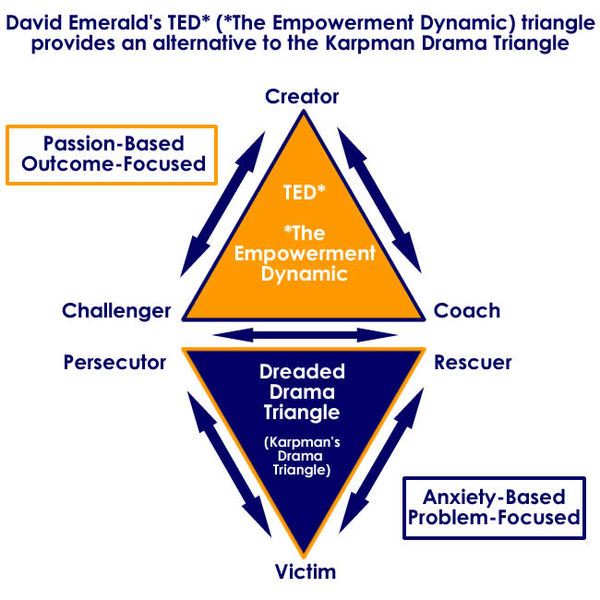Lesson 19: Self-Care as Ethical Practice
Attention
Compassion Fatigue and Vicarious Trauma
To view this video on YouTube click HERE
Learning Outcomes
Upon completion of this lesson's material, students will be able to:
- Identify self-care practices that impact their effectiveness as case managers
Teaching
Caught up in the Drama
In this lesson we look at our role in our career. This starts first and foremost with taking care of our own needs. Failing to understand ourselves and take care of our needs jeopardizes our ability to manage our client‚s cases. We do not want to externalize our problems, successes, strengths or weaknesses onto our clients. Awareness is key.
We get caught up in the Karpman Drama Triangle

Moral Development (Care Perspective)
On Gilligan's model, moral development is the development of a self-in-relation. Morality is understood in terms of the preservation of valuable human relations. Progress from stage to stage is motivated by increasing understanding of human relationships
|
Care vs. Justice Perspective
Our moral/ethical practice centers around these two perspectives. Consider THIS chart in relation to how we approach specific questions in our practice.
See Yourself as an Effective Tool
- You are the only "tool" you bring to your work
- Your attitudes and feelings in a particular day can effect your practice
- You need to seek your own wellness
- This is important in the work that you do for others
- Attention to self is in ADDITION to attention to others...so you don't have to feel guilty
Ways to be more Effective
- Accept your strengths and weaknesses
- Be flexible, don't demand perfection
- Understand why you feel strongly about certain behaviors and conditions
- Know why you chose to work with other people
- Look ahead and choose a direction for yourself
- Resolve your personal problems
Self Care
- Develop healthy relationships away from the agency
- Develop other rewarding and stimulating interests
Assessment
Lesson 19 Discussion
Read and complete the file Self Evaluation (this is a MS Word document). Your responses are for your personal information and should not be submitted.
Reflecting on the process of completing the self evaluation, did you find that it revealed opportunities for improvement? Is self evaluation important in our journey to success? How can we implement this practice when we are working in the field?